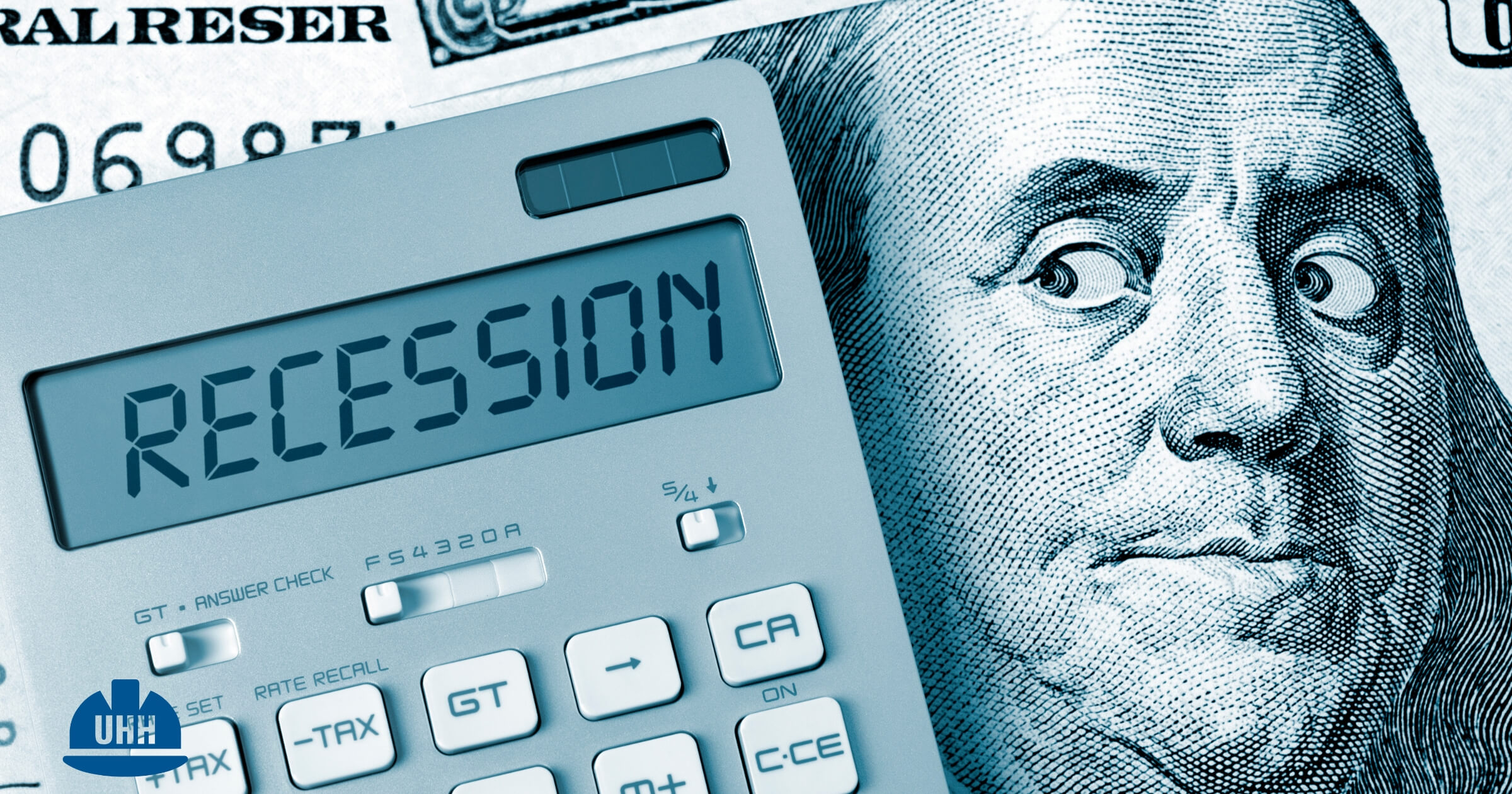With the Trump administration come tariffs, strained trade relationships, and an uncertain economy. Experts are predicting a recession in 2025 is near, with a mild-to-moderate impact on the US and Canadian economies until 2026, at the very least. To best recession-proof construction businesses, diversified services, strategic spending, and a tech-driven approach are key.
Experts predict a recession will start in 2025 after Trump’s tariffs
CNBC recently conducted its CFO council survey, recording the opinions of chief financial officers at large enterprises across sectors of the U.S., and the findings were largely pessimistic. According to the survey, the biggest contributor is the U.S. trade policy, with inflation and consumer confidence in income following closely behind. Business and job prospects are hitting a 12-year low.
90 percent of CFOs express that tariffs will create “resurgent inflation,” and 95 percent reported that policy uncertainty impacts their business decision-making. The responses regarding the severity of the recession mostly land in the “likely to be mild” or “likely to be moderate” camp, with some respondents stating things might even stabilize after about 100 days or so.
CFOs worldwide predict that we’ll see the full effects of the recession in late 2025 to early 2026. Expect a significant decline in stock prices and the economic activity in the global economy.
Why Canada is even more likely to fall into a recession than the United States

The new US tariffs, which were the primary concern in the CFO survey, combined with new trade policy uncertainty, are likely to impact Canadian business exports and investment this year. Oxford economists expect roughly 180,000 layoffs and a new spike in the unemployment rate, up to 8% by 2026.
Their forecast also suggests that the impact of President Trump’s 25% tariffs on Canadian products and 10% tariff on energy will begin in Q2 of 2025. This, they predict, will lead to negative economic growth for at least a year afterward. Ultimately, the probability of a recession in Canada comes down to the tariffs and heightened strain on the trade agreement between Canada and the U.S.
Experts expect the Canadian economy to stabilize in mid-2026, assuming that most tariffs will be lifted after a USMCA trade agreement renegotiation with president Donald Trump. However, given the fractured state of affairs between the countries, including Trump’s recent annexation threats, the assumption remains flimsy at best.
How to know if the US economy is in a recession
While there’s no concrete definition of a recession internationally recognized, generally, two consecutive quarters of decline in a country’s Gross Domestic Product (GDP) is the rule of thumb. The GDP reports the value of all goods and services a country produces. Aside from the GDP marker, an increase in unemployment and a decrease in consumer spending also indicate a potential recession.
What this could mean for builders
With a decline in GDP for both the United States and Canada, chief economists expect a decline in spending and demand. This will likely lead to a stagnant period for builders in the construction space. A recession has a ripple effect on all industries, and the main markers the construction industry could see include:
- Cash flow issues
- Decreased project demand
- Higher prices
- Tax increase
- Disruptions in the supply chain
- Stalls in material delivery
- Credit card debt
- Labor challenges
Depending on the length of the recession, these issues could compound over time. Contractors should anticipate project delays, financial instability, and job cuts for workers.
How contractors can prepare for an upcoming global recession

The good news to a recession in 2025 is twofold. One, it’s not going to last forever. The financial markets do recover, and your small business could thrive as it once did. And two, there are ways you can prepare your business and absorb minimal impact.
- Diversify your services: If you build in a niche sector, it might be time to expand and diversify your offerings. As demand decreases, your business might need all the inquiries it can get.
- Be strategic with spending: Consider shifting to a prefab strategy so you’re only spending on the exact material you require. Also, audit your overhead spending and determine where you can cut costs.
- Reduce your debt: If your business has high-interest debts, you should prioritize paying them off before cash flow slows.
- Build strong relationships: Support other businesses in the industry that also have your back. Keeping the relationships with shared contracts close will help your business stay afloat.
- Integrate technology: AI products and estimation software tools can help teams better manage their operations in a recession. Accurate deadlines, scheduling, and material use will save your company time and money at the end of the day.
Final thoughts
A recession in 2025 means an economic downturn for every industry, including construction. As the world’s economists predict it will start as early as this year, contractors should prioritize preparedness now.
Your organization could experience cash flow issues, decreased consumer demand, supply chain disruptions, and even credit card debt. But by diversifying your services, being more strategic with your personal finances, and leaning into your relationships, you might see your business stay afloat more easily into the next quarter of economic growth.
Want to stay in the loop on the latest news in construction? Follow us on LinkedIn and subscribe to the newsletter so you get breaking stories delivered straight to your inbox.


